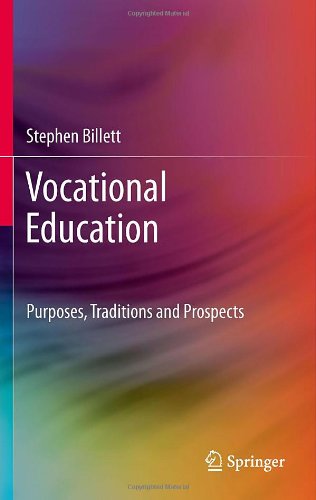

Most ebook files are in PDF format, so you can easily read them using various software such as Foxit Reader or directly on the Google Chrome browser.
Some ebook files are released by publishers in other formats such as .awz, .mobi, .epub, .fb2, etc. You may need to install specific software to read these formats on mobile/PC, such as Calibre.
Please read the tutorial at this link: https://ebookbell.com/faq
We offer FREE conversion to the popular formats you request; however, this may take some time. Therefore, right after payment, please email us, and we will try to provide the service as quickly as possible.
For some exceptional file formats or broken links (if any), please refrain from opening any disputes. Instead, email us first, and we will try to assist within a maximum of 6 hours.
EbookBell Team

0.0
0 reviewsThis book discusses what constitutes vocational education as well as its key purposes, objects, formation and practices. In short, it seeks to outline and elaborate the nature of the project of vocational education. It addresses a significant gap in the available literature by providing a single text that elaborates the scope and diversity of the sector, its key objectives (i.e. vocations and occupations), its formation and development as an education sector, and the scope of its purposes and considerations in the curriculum. The volume achieves these objectives by discussing and defining the concept of vocational education as being that form of education that seeks to advise individuals about, prepare them for, and further develop their capacities to perform the kinds of occupations that societies require and individuals need to participate in—and through which they often come to define themselves. In particular, it discusses the distinctions between occupations as a largely social fact and vocations as being a socially shaped outcome assented to by individuals. As people identify closely with the kinds of occupations they engage in, the standing of, and the effectiveness of vocational education is central to individuals’ well-being, competence and progress. Ultimately, this book argues that the provision of vocational education needs to realise important personal and social goals.